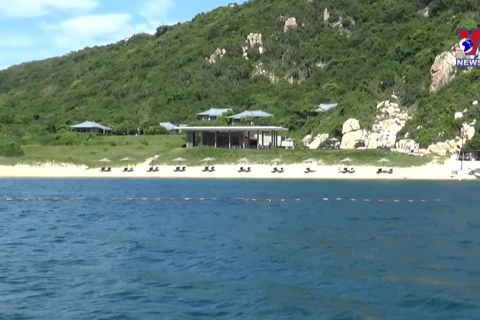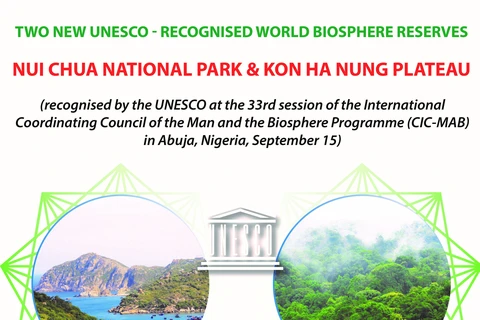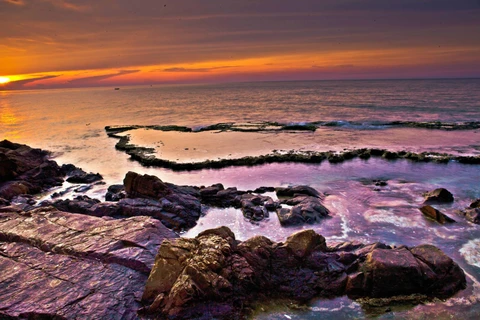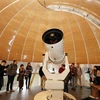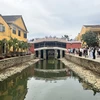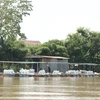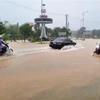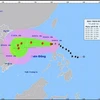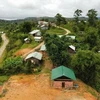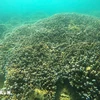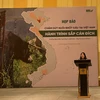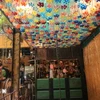Hanoi (VNA)- According to Deputy Minister of Natural Resources and Environment Vo Tuan Nhan, Vietnam is facing the degradation of biodiversity along with other great challenges due to climate change, including environmental and water pollution. Vietnam’s biosphere reserves are "natural laboratories" for the country to apply a global approach, new solutions to achieve sustainable development goals.
20 years preserving the “green house” for next generation
At the meeting in response to the International Day on Biosphere Reserves taking place in Cat Ba National Park (Hai Phong City) on November 3, Nhan emphasized that humanity is still facing many crises due to climate change. Environmental pollution increases as biodiversity declines at an unprecedented pace in history.
In that context, people's relationship with nature and life on the planet needs to be focused in national development decisions. Therefore, the world biosphere reserves are considered as a typical solution for sustainable development models, ensuring harmony between people and nature.
In Vietnam, the first world biosphere reserve was recognized as Can Gio Mangrove Biosphere Reserve in 2000. After 22 years of development, the country has 11 world biosphere recognized by UNESCO with areas of special value in terms of nature and biodiversity, becoming the country with the second largest number of Biosphere Reserves in Southeast Asia.
Over the past time, policies and legal corridors to support the management of biosphere reserves have been gradually developed. In particular, strengthening the management of biosphere reserves is the task set out in the National Strategy on Biodiversity to 2030, the Law on Environmental Protection 2020.
Currently, documents instructing the law has also created an important legal basis for the management and environmental protection of world biosphere reserves.
However, according to Nhan, Vietnam is still facing the degradation of biodiversity along with other great challenges such as the COVID pandemic, environmental and water pollution, and land degradation, ocean plastic pollution and the extreme effects of climate change.
Nhan emphasized that protecting the environment and ensuring a harmonious relationship between humans and nature is a very important task. In particular, biosphere reserves are 'nature laboratories' for Vietnam to apply a global approach, new solutions to successfully achieve the goal of sustainable development.
According to Nhan, this is an important event to propagate widely to society on the role of the world biosphere reserve for human life; thereby calling for initiatives and actions on environmental protection, conserving nature and biodiversity, implementing sustainable livelihoods for communities around the globe, and contributing to the achievement of sustainable development goals in all countries.
With the fact that Vietnam has 11 world biosphere reserves recognized by UNESCO, Dao Quyen Truong, Deputy Director of the Department of Cultural Affairs and UNESCO under the Ministry of Foreign Affairs said that one of the biggest challenges facing humans today is how to strike a balance between biodiversity conservation and socio-economic development. While accomplishing that, society still needs to maintain traditional cultural values to meet the increasing needs of people.
Professor and Doctor Nguyen Hoang Tri - Chairman of the National Committee for Humans and Biosphere of Vietnam also said that the protection of biosphere reserves is environmental protection towards sustainable development. Therefore, in the coming time, each biosphere reserve across the country will have its own initiatives to achieve the common goal of sustainable development.
At the ceremony, delegates made a commitment to act on the conservation of World Biosphere Reserves in Vietnam. Later they participated in a tree planting program to respond and promote the implementation of the 1 Billion Trees Initiative./.

